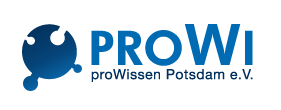
Science in the Center
Science has been a major theme in Brandenburg for centuries. Today, Berlin-Brandenburg has long been one of Europe’s well renowned research regions, and Potsdam is the city in Germany with the highest density of scientists.
In the center of the country and in the immediate vicinity of Berlin, Potsdam is a city of knowledge transfer. More than 15,000 of the more than 2.5 million Brandenburgers work in scientific institutions. Brandenburg is home to four universities and ten colleges, including the Hasso Plattner Institute as the first and, so far, only exclusively privately financed university institute in Germany, which operates a privately funded Digital Engineering Faculty together with the University of Potsdam. You will also find the world’s only film university in Brandenburg, as well as the Universities of Applied Sciences for Finance and the Brandenburg Police. Together with numerous non-university research institutions, they all form an efficient science and research structure in the state of Brandenburg.
Each of the major German research organizations is represented here: research is conducted in 19 institutions of the Leibniz Association, Fraunhofer Society, Helmholtz Association, and Max Planck Society in Brandenburg. Other internationally renowned research institutions such as the Moses Mendelssohn Center for European Jewish Studies, the Einstein Forum in Potsdam, or the Sorbian Institute with a branch office in Cottbus, are also based in Brandenburg. With the development of Lusatia as a research region, this number will continue to grow in the upcoming years.
Since 2009, Potsdam has also been home to the IASS – Institute for Advanced Sustainability Studies, a leading institute for climate and sustainability research. Today, the region particularly attracts attention with outstanding research results in the fields of life sciences, traffic engineering, natural and engineering sciences, software technology, microsystems and laser technology, and geosciences.
The highly specialized scientific and research institutions are also available to regional and national companies as transfer and cooperation partners.
